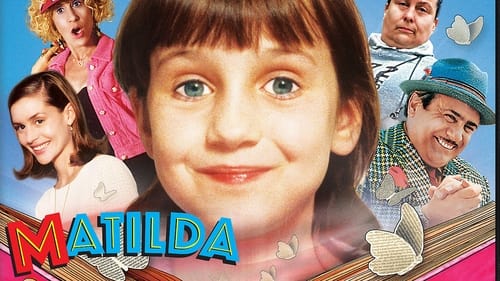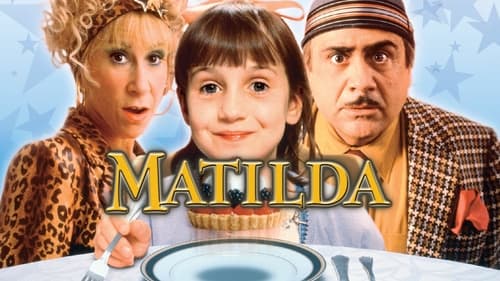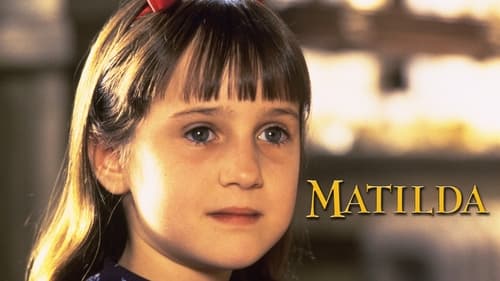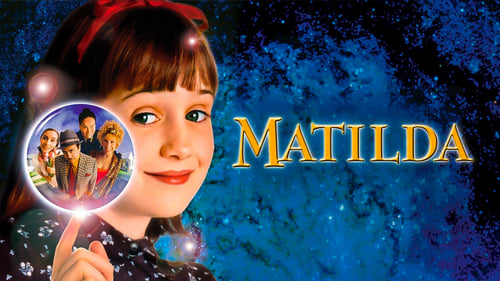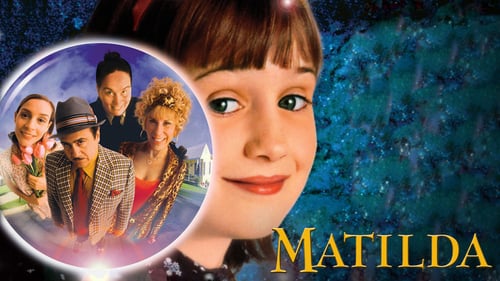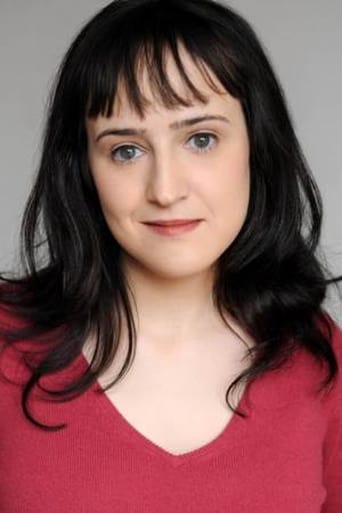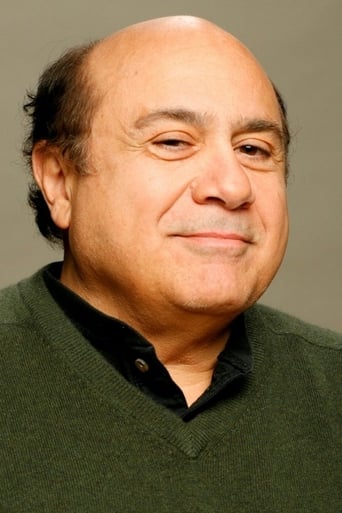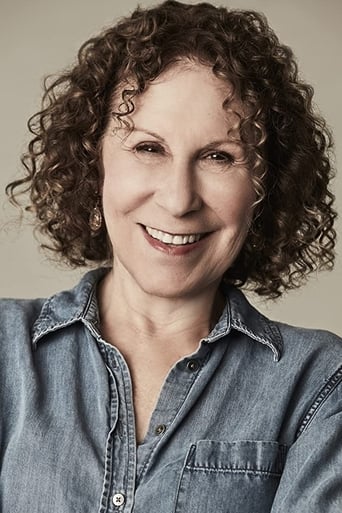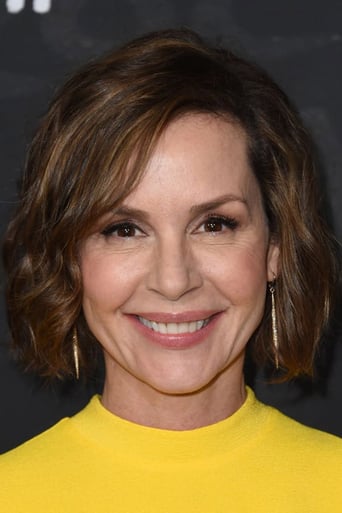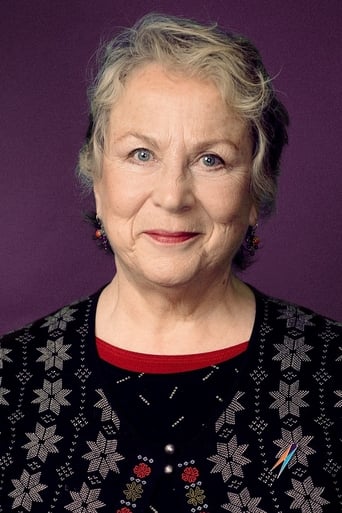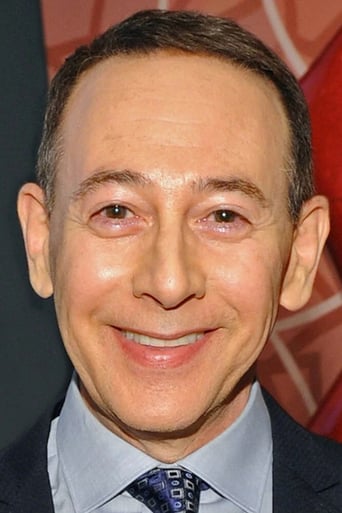Perry Kate
Very very predictable, including the post credit scene !!!
VividSimon
Simply Perfect
Nicole
I enjoyed watching this film and would recommend other to give it a try , (as I am) but this movie, although enjoyable to watch due to the better than average acting fails to add anything new to its storyline that is all too familiar to these types of movies.
Mihai Toma
A young girl, neglected and underappreciated by her family, is sent to a local school with a nightmarish principal. Her unique character, her extraordinary intelligence and some newly found powers, make her easily remarkable and with the help of her teacher, with a troubled past of her own, are about to radically change her live forever.It's a wonderful movie, filled with laughter and joy, which presents a small portion of a girl's life, who once sent to school, is about to find out that there is a real life out there to be found, quite different to those she found in the books. The school's principle and her family seem determined to make her life unhappy and hard, but her lovely teacher will always be there for her.We're presented a bunch of unique characters, who manage to generate laughter with almost everything they do, thanks to their way of being. The plot is unique and interesting, but not groundbreaking, managing to keep the viewer interested until the end. I have to admit that the movie tends to exaggerate in a couple of aspects and it's up to you to decide if this is for good or for worse. From where I'm standing, it uses this "feature" to emphasize certain aspects of the plot, which ultimately lead to a great atmosphere, full of laughter and joy. The special effects used are also very good, considering its time, contributing a lot to the outcome especially in the last part.It's the perfect film to watch with your family. It has great characters, great actors, a good plot, plenty of happiness, a bit of drama and much comedy. Even after seeing it multiple times throughout the past twenty years, it still managed to be a very good watch even now, when I almost know the plot by heart. The feelings it transmits cannot be translated into words and the fact that it made me feel this way every single time I've seen it makes it a superb movie.
Minahzur Rahman
I remember seeing this film as a child, and I enjoyed it to bits. It even had me jumping of my couch due to the horrible school principal, as Matilda was inside her house searching for the "treasure" – that was probably the best part of the movie. It's a real shame we barely see any children as bright as Matilda in this film, but one thing is for sure that Matilda is a huge inspiration. I'm just amazed this is now over two decades old, but the magical thing about it is that it never seems to get old – how the irony.
jaywensley2004
Roald Dahl wrote books and stories that could inspire and embolden children (and for that matter, adults) to challenge a daunting world in which bullies, tyrants and other malefactors would seek to oppress and manipulate them. "Matilda" (the book) is a tour de force by the author, presenting his "child-empowering" politics in the most realistic, relatable setting of any of his most popular novels."Matilda" the movie grinds Dahl's crafty, subversive story and his ability to write such a story into "Nightmare on Elm Street" for the grammar school and pre-teen set. Dahl's novel, which with its scant, succinct, read-in-a-couple-of-hours subtlety, nuance and subversion matches the entire "Harry Potter" canon, is ironically the victim of the very authoritarianism it encorages subverting. "Matilda" the movie contains so many revisions and diminishments to and of Dahl's story as to be a completely different tale. The text "Based on..." in the credits of a movie has become so common that few people give any thought to the source material. In the case of "Matilda" the movie vs. "Matilda" the book this is not only unfortunate, it is a dis-service to their children and to any parents who value having their children learn, understand and engage in critical thinking. And the possible "Spoilers" begin:---1)"Matilda" the book: Matilda is the daughter/sister of shallow, materialistic, vacuous parents and brother; the worst possible common-denominator of the "Me Generation" of the 1980's. They are not the inevitable result of their era, the Wormwoods have made choices that result in both their vapidity and perhaps as counter-balance, Matilda. ---1A)"Matilda" the movie: Matilda is the daughter/sister of cartoons. One-dimensional, stupid to the point of begging the viewer to question how such adults could achieve adulthood much less be thriving, these caricatures raise the first of many questions: Where is the cleverness, the craftiness Dahl provides the Wormwoods? ---2)"Matilda" the book: Matilda's reading exposes her to thought processes, ideas, concepts, motives not generally available to elementary school age children. Her favorite author is Charles Dickens, and from him and other writers she develops an intuitive understanding that the world is not in balance. ---2A)"Matilda" the movie: Matilda reads voraciously, but what does she learn from that reading?---3) "Matilda" the book: Ah-Ha! A critical idea emerges; Matilda, through her reading has obtained crucial insight into adult motives, behavior, actions. She develops the understanding that size and age are not impervious barriers to ethical and moral actions. ---3B) "Matilda" the movie: Matilda is inspired by her amoral, criminal father to consider the possibility that she (a child) is as much a person (and therefore as powerful) as any adult.An aside: Which is more potent, more effective, more persistent, sustainable? Insight or information?---4) "Matilda" the book: Matilda makes scant use of her "powers." ---4A) "Matilda" the movie: Matilda dances about, moving furniture, controlling electrical switches, ad infinitum... and directly relevant to... ---4.b) "Matilda" the book: the first time Matilda seeks to demonstrate her powers to Miss Honey, she succeeds. Miss Honey is never, ever doubtful of Matilda's abilities. ---4.A.b) "Matilda" the movie: Matilda is unsuccessful in her early attempt to demonstrate her ability to Miss Honey. And the "Hollywood-ization" of "Matilda" takes it first big step.---5A) "Matilda" the movie: the entire, long, drawn out episode of Matilda psychically invading Trunchbull's (yes, I know) house is contrived. No version of it exists in Dahl's book. This sequence is the most shameless, pandering and demeaning scene in the film (although it has credible competition for this dishonor). ---5) "Matilda" the book: Nothing like this scene occurs in Dahl's novel, for good reason. Matilda's power, its existence and her use of it is, as will be evidenced at the story's end, purposeful, deliberate...righteous.An aside: In "Matilda" the movie Matilda has magic powers which she maintains after the story's climax. In "Matilda" the book, Matilda is never able to manifest her telekinetic ability after she rectifies the wrongs committed against Miss Honey. I suggest that the movie's ending is much less "spiritual" than Dahl intended.---6) "Matilda" the book: Having overcome Trunchbull and redressing the wrongs committed against Miss Honey, Matilda never again manifests her telekinesis, suggesting the ability was specific to a situation...that is, spiritual. ---6B) "Matilda" the movie: Matilda continues to demonstrates telekinetic ability, which would beg the questions "What will a human with such power do?," "How will Matilda affect and influence the world?," etc., etc., etc..And lastly, but not "leastly:"---7B) "Matilda" the movie: In Dahl's book Matilda is never mean or malicious. The treatment of Trunchbull at the film's climax depicts an act of vengeance severely out of character with Matilda's nature and her manifestation of her telekinetic ability. It is consistent with the "Hollywood-ization" of the story in that it provides a slapstick, child-pleasing and child-accessible conclusion. ---7A) "Matilda" the book: Matilda earns an understanding of empowerment, but also learns that the power she had and used was a metaphor for being responsible, intelligent, clever, wise, compassionate...all the traits she sought in the adults around her.Even granting that the movie versions of books are generally criticized for the liberties, variances and accommodations that are part of "getting the movie made," Matilda, the movie, is too much a violation of its source to be worthy of viewing.
powermandan
Matilda is a children's novel by Roald Dahl brought to the big screen by Danny DeVito in one flick that everybody in the 90s knows and loves. I have never read the book, but I did read some pages that say how different the movie is from it. DeVito's directing must've been for the better. Matilda, like Dahl's other works are dark and over-exaggerated humour and content. As a kid, I really felt bad for Matilda and Miss Honey. There are also plot holes and things I would there to have been added. But for what it is, it is good.In Mara Wilson's best-known role, she plays the titular character born into a family of neglectful and mean parents (DeVito and Perlman). She is super smart and learns how to take care of herself by age 2, while her dumb mother goes off to gamble and her father sells phoney and stolen car parts for unfair prices. We get a good look into her family life and feel really bad how horrible she is treated. The older I got, the more I couldn't help laughing. Although a serious subject and lots of sympathy towards Matilda, it is a lot funnier than it is sad. That is the kind of dark humour that Dahl loved to do. She enrols in school where she is subjected to a principal worse than her parents: the evil, former-Olympian Agatha Trunchbull (Ferris). Trunchbull throws kids out the window and long distances for any bit of misbehaviour; she also has a non-deadly iron maiden in her office called the "chokey." It is very unrealistic how none of what she does goes unreported. But, this is part fantasy. I think that Pam Ferris should have won an Oscar for her role as Ms. Trunchbull. While Matilda's parents are cruel, it is down in a very hilarious manner; but Trunchbull is even funnier because she is worse. it is over-the-top at its best. Matilda's teacher is the kind Jennifer Honey, who has parallels to Matilda. She soon learns that she has special powers which she can uses for good and bad. When Matilda learns the secret connections between Miss Honey and Ms. Trunchbull, she devices a plan to destroy Trunchbull once and for all. This takes place over the course of days, some of which can be frightening to younger audiences. I know I was when it came out. Matilda's parents move to Guam by the end to escape the keen FBI and Miss Honey adopts Matilda. I do like the fact that Miss Honey and Matilda end up together, but I wish that she destroyed her parents in a similar manner to what she did to Trunchbull. Matilda's parents have abused her her entire life while Trunchbull was mean just a few weeks. We do see Matilda do funny pranks as acts of revenge, but it's not enough. At least it has a happy and realistic ending. Despite flaws, Matilda is a genuine movie that keeps the laughs and smiles rolling.


